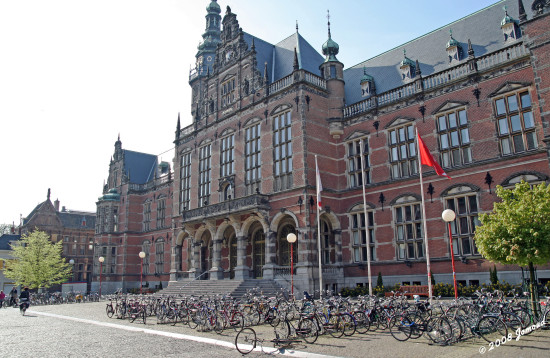In a time when the world is moving from fossil fuels to cleaner energy systems, renewable energy has become a promising and impactful area of study. Nations around the globe are heavily investing in green innovation, including solar, wind, bioenergy, and sustainable technologies. For Nigerian students eager to tackle global energy challenges, this field not only promises academic growth but also opens up practical career options in research and industry.
As Nigeria faces energy transition and sustainable development, many young Nigerians are looking abroad to gain the skills needed to promote renewable energy solutions back home. The good news is that several countries have created opportunities for international students, especially Africans, to study and build careers in green energy.
Here’s a look at six countries that stand out as the best options for Nigerians seeking renewable energy education abroad: Germany, Sweden, Finland, Netherlands, Canada, and Japan.
Germany: The Green Engine of Europe
Germany is known worldwide as a leader in renewable energy innovation. With its ambitious “Energiewende” (Energy Transition) policy, the country aims to produce over 80% of its power from renewables by 2030. Public universities in Germany have incorporated green energy subjects into engineering, technology, and environmental management courses, attracting thousands of international students each year.
Why Nigerians Should Choose Germany
Germany is appealing because it offers affordable tuition, excellent research facilities, and a strong job market in renewable energy. Many programs are available in English, and the German Academic Exchange Service (DAAD) provides scholarships for Nigerian students focusing on sustainable development and renewable energy systems.
Top Universities for Renewable Energy Studies
- Technical University of Munich (TUM): MSc in Renewable Resources
- RWTH Aachen University: MSc in Energy Engineering and Sustainable Energy Supply
- University of Freiburg: MSc in Renewable Energy Engineering and Management
Cost of Study and Living
Public universities charge minimal or no tuition fees. Living expenses typically range from ₦800,000 to ₦1,200,000 per month (about €1,000 to €1,200), covering accommodation, food, and transport.
Visa Application Process
1. Gather required documents:
- Admission letter from a German university
- Proof of funds (€11,208 in a blocked account or a scholarship)
- Proof of health insurance
- Academic certificates and transcripts
- Valid international passport
2. Schedule a visa appointment at the German Embassy in Abuja.
3. Attend an interview and submit biometric data.
4. Wait for your student visa approval.
Official Visa Site: German Embassy Nigeria
Tips for Nigerians
- Learn basic German phrases before you arrive.
- Apply early for DAAD or Heinrich Böll Foundation scholarships.
- Renewable energy hubs like Munich and Berlin are great for internships and networking.
Sweden: Innovation Meets Sustainability
Sweden consistently ranks as one of the world’s greenest countries. The Swedish government invests significantly in clean technology and energy efficiency research. Universities collaborate with global institutions to advance renewable energy innovations throughout Europe and beyond.
Why Nigerians Should Choose Sweden
Sweden offers tuition-free education for EU/EEA students and many scholarships for non-EU students, including Nigerians. Its renewable energy programs provide both theoretical knowledge and practical experience through access to modern labs and real-world energy projects.
Top Universities for Renewable Energy Studies
- KTH Royal Institute of Technology: MSc in Sustainable Energy Engineering
- Lund University: MSc in Environmental Management and Policy
- Uppsala University: MSc in Renewable Energy Production
Cost of Study and Living
Tuition fees for non-EU students range from ₦4.5 million to ₦8 million per year, while living costs vary from ₦900,000 to ₦1.3 million per month depending on the city.
Visa Application Process
- Obtain admission from a recognized Swedish university.
- Apply for a residence permit for studies through the Swedish Migration Agency.
- Provide proof of financial means (~SEK 10,314/month).
- Submit biometric data at the Swedish Embassy in Abuja.
Official Visa Site: Swedish Migration Agency – Study in Sweden
Tips for Nigerians
- Stockholm and Gothenburg have vibrant student communities.
- Sweden is friendly to English speakers, but learning Swedish can improve job prospects.
- Take advantage of internships offered through your university.
Finland: Northern Excellence in Green Technology
Finland is a hidden gem for renewable energy research. The country excels in wind and biomass technologies and integrates sustainability across various engineering and environmental disciplines.
Why Nigerians Should Choose Finland
Finland combines high academic standards with affordable living costs and scholarship opportunities. The country also offers post-study work permits, allowing graduates to stay and work in green sectors.
Top Universities for Renewable Energy Studies
- Aalto University: MSc in Advanced Energy Solutions
- Lappeenranta-Lahti University of Technology (LUT): MSc in Sustainability Science and Solutions
- Tampere University: MSc in Environmental Engineering
Cost of Study and Living
Tuition fees range from ₦3.5 million to ₦6 million per year, with living expenses averaging ₦700,000 to ₦1 million per month.
Visa Application Process
- Obtain admission to a Finnish university.
- Apply for a residence permit for studies via the Finland Immigration Service (Migri).
- Provide proof of funds (EUR 560/month for living).
- Book biometrics at the Finland Visa Application Centre in Lagos or Abuja.
Official Visa Site: Finnish Immigration Service – Migri
Tips for Nigerians
- Finnish universities encourage research collaboration with Nigerian institutions.
- Prepare for intense winters with appropriate clothing.
- Use the first year to build connections in the green energy sector.
Netherlands: Europe’s Sustainable Innovation Hub
The Netherlands is among the most advanced countries in sustainability, with significant investment in offshore wind, bioenergy, and circular economy research.
Why Nigerians Should Choose the Netherlands
Dutch universities focus on innovative education, mixing classroom theory with practical projects in renewable technologies. Many programs are taught in English, making them accessible for Nigerians.
Top Universities for Renewable Energy Studies
- Delft University of Technology (TU Delft): MSc in Sustainable Energy Technology
- University of Groningen: MSc in Energy and Environmental Sciences
- Eindhoven University of Technology: MSc in Sustainable Innovation
Cost of Study and Living
Tuition fees average between ₦5 million and ₦8 million per year, while monthly living expenses tend to be between ₦900,000 and ₦1.2 million.
Visa Application Process
- Secure admission and pay part of your tuition fees.
- The university applies for your MVV (student entry visa).
- Provide necessary documents (proof of funds, passport, acceptance letter).
- Collect your visa from VFS Global Netherlands in Lagos or Abuja.
Official Visa Site: Netherlands Student Visa via VFS Global
Tips for Nigerians
- Cycling is a major mode of transport, so budget for a bike.
- Consider the Holland Scholarship for Nigerians.
- Networking is vital, as the Dutch academic environment values collaboration.
Canada: North America’s Renewable Research Leader
Canada’s dedication to clean energy is unparalleled in North America. Its vast geography provides opportunities to study hydropower, solar, and bioenergy technologies in practical settings.
Why Nigerians Should Choose Canada
Canada hosts top-ranked universities, provides post-graduate work permits, and has a sizable Nigerian student community. Renewable energy programs are highly research-oriented and align with the country’s climate goals.
Top Universities for Renewable Energy Studies
- University of British Columbia (UBC): MSc in Clean Energy Engineering
- University of Calgary: MSc in Sustainable Energy Development
- Carleton University: MSc in Sustainable Energy
Cost of Study and Living
Tuition fees typically range from ₦8 million to ₦12 million per year, while living costs average around ₦1 million per month.
Visa Application Process
- Secure admission and obtain a study permit.
- Apply online through the Government of Canada Student Visa Portal.
- Provide biometrics and proof of tuition payment and financial documents.
- Submit your passport to VFS Global Canada in Lagos or Abuja.
Official Visa Site: Government of Canada – Study Permit
Tips for Nigerians
- Apply early, as Canadian visa processing can take time.
- Nigeria is included in the Student Direct Stream (SDS) pilot, which offers faster processing for eligible applicants.
- Use Canadian internships to gain experience in renewable energy.
Japan: Asia’s Technological Powerhouse for Green Innovation
Japan has become a global leader in energy efficiency, hydrogen technology, and solar innovations. It combines advanced research with a strong academic culture, making it ideal for Nigerians wanting technical depth.
Why Nigerians Should Choose Japan
Japan offers government scholarships (MEXT) and partnerships with African nations, making it one of Asia’s most accessible destinations for Nigerians. Its renewable energy research programs are among the most developed in the world.
Top Universities for Renewable Energy Studies
- University of Tokyo: MSc in Environmental Systems
- Kyoto University: MSc in Sustainable Energy and Environmental Engineering
- Tohoku University: MSc in Renewable Energy Engineering
Cost of Study and Living
Tuition ranges from ₦3.5 million to ₦6 million per year, with living expenses between ₦800,000 and ₦1.2 million per month, depending on the city.
Visa Application Process
- Receive an admission letter or MEXT scholarship confirmation.
- Get a Certificate of Eligibility (COE) from your university.
- Apply for a student visa at the Embassy of Japan in Abuja.
- Submit biometric data and your passport for visa stamping.
Official Visa Site: Embassy of Japan in Nigeria
Tips for Nigerians
- Learning basic Japanese phrases can help with your integration.
- Apply for the MEXT scholarship early.
- Japan’s renewable energy sector offers long-term job opportunities after graduation.
Building Nigeria’s Green Future Abroad
For Nigerian students interested in sustainability and green technology, studying renewable energy abroad is more than just a degree, it is an investment in Nigeria’s future. Countries like Germany, Sweden, Finland, the Netherlands, Canada, and Japan provide inclusive, affordable, and progressive environments for developing the next generation of energy innovators.
These places offer world-class education and expose students to global partnerships, practical research, and opportunities to contribute to a cleaner planet. The experience gained abroad can help Nigeria move towards cleaner and more resilient energy systems.
For every Nigerian who dreams of shaping the energy future, now is the time to act. The global green revolution is underway, and your education could be the key to lighting up Africa sustainably.






Leave a Comment